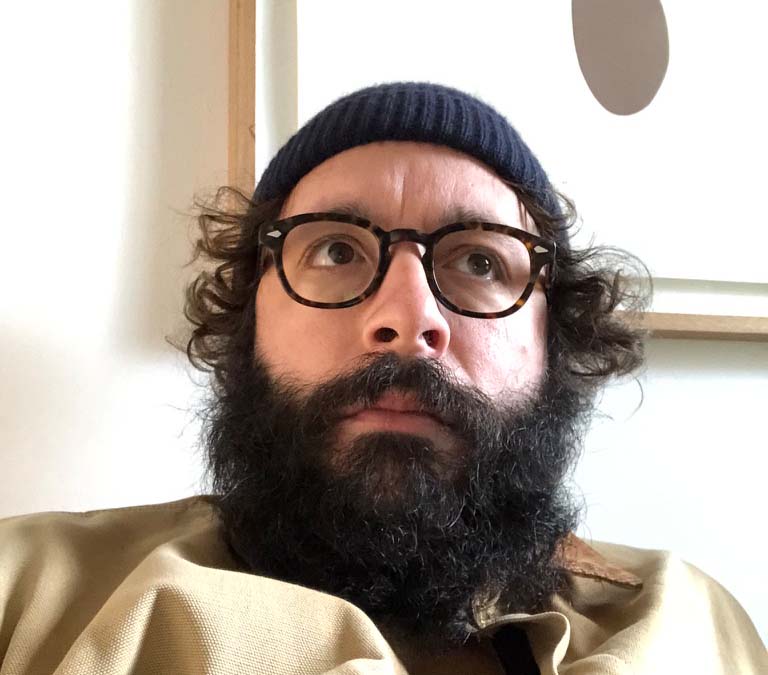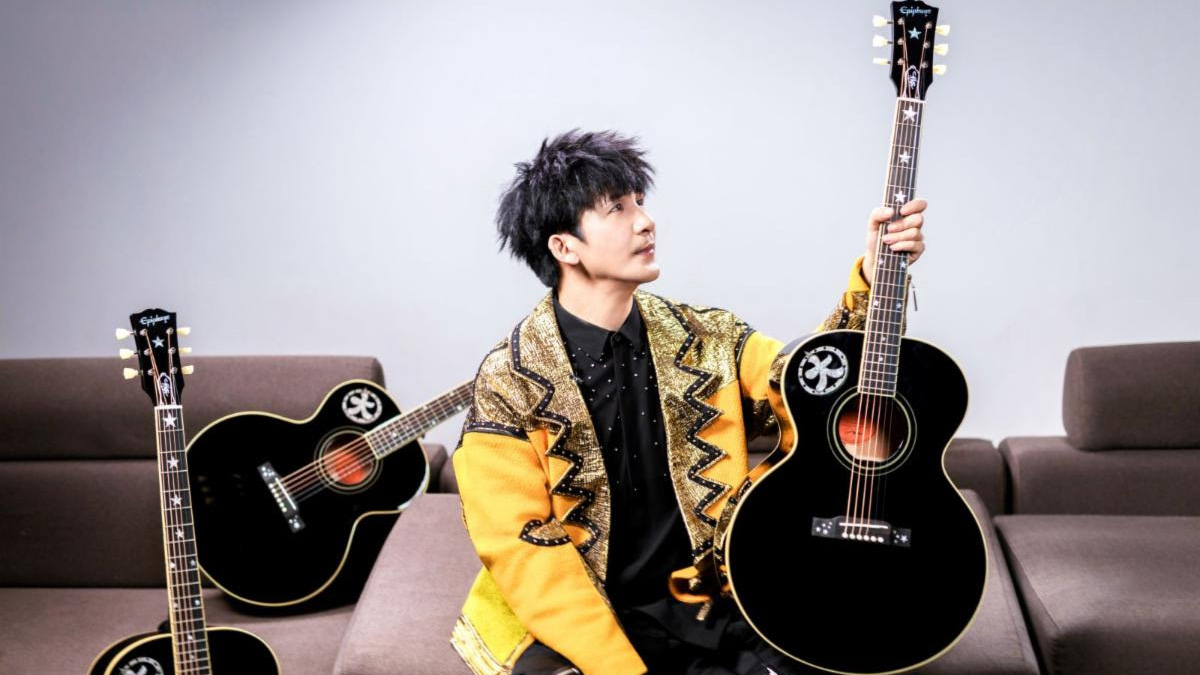Wata: “Even when I’m recording, I’m always imagining the live shows in my head when I’m playing”
The Boris guitarist checks in to discuss her new signature EarthQuaker Devices Hizumitas fuzz pedal, talk tone, and explain why her pedalboard is the launching pad for creativity

All the latest guitar news, interviews, lessons, reviews, deals and more, direct to your inbox!
You are now subscribed
Your newsletter sign-up was successful
Boris have been described as many things – as avant-garde, as experimental doom, noise rock, drone and so on. But maybe what the Japanese trio have been doing all along is making super-heavy feel-good music.
There’s a little channel-surfing along the way as they take the scenic route to communal replenishment. On one track, they might be playing in styles consonant with shoegaze, a dense cloud of candied rock-pop melodies to awaken the spirit. On another they’re harnessing the power of hardcore punk and creative destruction.
Yet, no matter where the dial is pointed, there’s something restorative about bathing in their sound, with guitarist Wata’s fuzzed-out tone a delicacy for the electric guitar epicurean.
In this, the era of the pedalboard tone odyssey, Wata’s counsel is definitely worth seeking. Her tone is a testament to the creative power of the fuzz pedal, and of volume, and how gain and dirt can used to give our riffs a three-dimensional quality.
Indeed, having just collaborated with EarthQuaker Devices on her signature Hizumitas fuzz, this is the opportune moment to speak to Wata about her approach to tone, and of course where this replica of a rare and OOP Japanese Big Muff replica fits in.
As she describes it, there’s something elemental about playing high-volume electric guitar, about pushing frequencies through the air. And on their latest studio album, NO, their 26th of a prolific and protean recording career, Boris are at their most elemental.
Recorded during the ensuing panic of 2020, NO lurches into life with the savage beauty of Genesis, its low-end doom frequencies an instrumental spectacle that makes it feel like the atoms in the room have been realigned, before blast-off into a salvo of tracks that disperse the white light of hardcore punk into a full spectrum of color.
All the latest guitar news, interviews, lessons, reviews, deals and more, direct to your inbox!
There are many lessons we can take from studying Wata’s playing from Boris’s discography, but maybe the biggest one is in how the attention to detail to the music we are making – to our tone, to the harmonic overtones, the very texture of the sound – can make even the simplest of compositions transcendent, and indeed, how it could become similarly crucial to the songwriting process as finding the right melody.
I guess we should start with the pedal. Congratulations! As I understand it, the Hizumitas is an exact replica of your Elk fuzz. When did you first find the pedal and what makes it sound special?
“This particular one I have has ‘Elk Big Muff Sustainar’ written on it, and I think I found it in an auction on the internet. I was interested in fuzz pedals at the time because of the artists I was into and people that were involved in Boris, so I was trying many fuzz pedals.
“I bought and tried a few real Big Muffs but I instantly fell in love with this the first time I played it. Takeshi also had an Elk fuzz with a different name on it, 'Super Fuzz Sustainar', but it was very different than the one I have. Actually, Takeshi and I played the Elk fuzz pedals on the song Feedbacker.”
An original Sustainar is so expensive these days. You must be a little nervous when touring with one in case something happened to it. Have you had a chance to A/B the Hizumitas with the Sustainar? And if so, is it close enough that you can leave your Sustainar behind when touring?
I often use the Hizumitas with a distortion to create more chaotic feel
“Up until now I always took my Elk; that had been my main dirt [box] out on tour. But it has been broken many times and it’s getting beat up a lot. I was wanting a replacement as I had a fear of not being able to recreate my sound if I keep using it and it would eventually break and stop working.
“I always thought that it would be great to be able to get the same sound with something I can always get. The Hizumitas is not inferior to my ELK when I A/B them. I’ve already played a few shows with it and it was really good, so from now on, I will take the Hizumitas on tour.”
Is the Hizumitas/Sustainar the sort of fuzz that you might stack? I know you also sometimes have your MASF Watafuzz Foxx-style fuzz on the same pedalboard as the Sustainar, and they are quite different sounds. Do you use them together?
“I use them together and separately, depending on the song. A wah, reverb and echo with it, too. For the Hizumitas, I often use it with a distortion to create a more chaotic feel.”
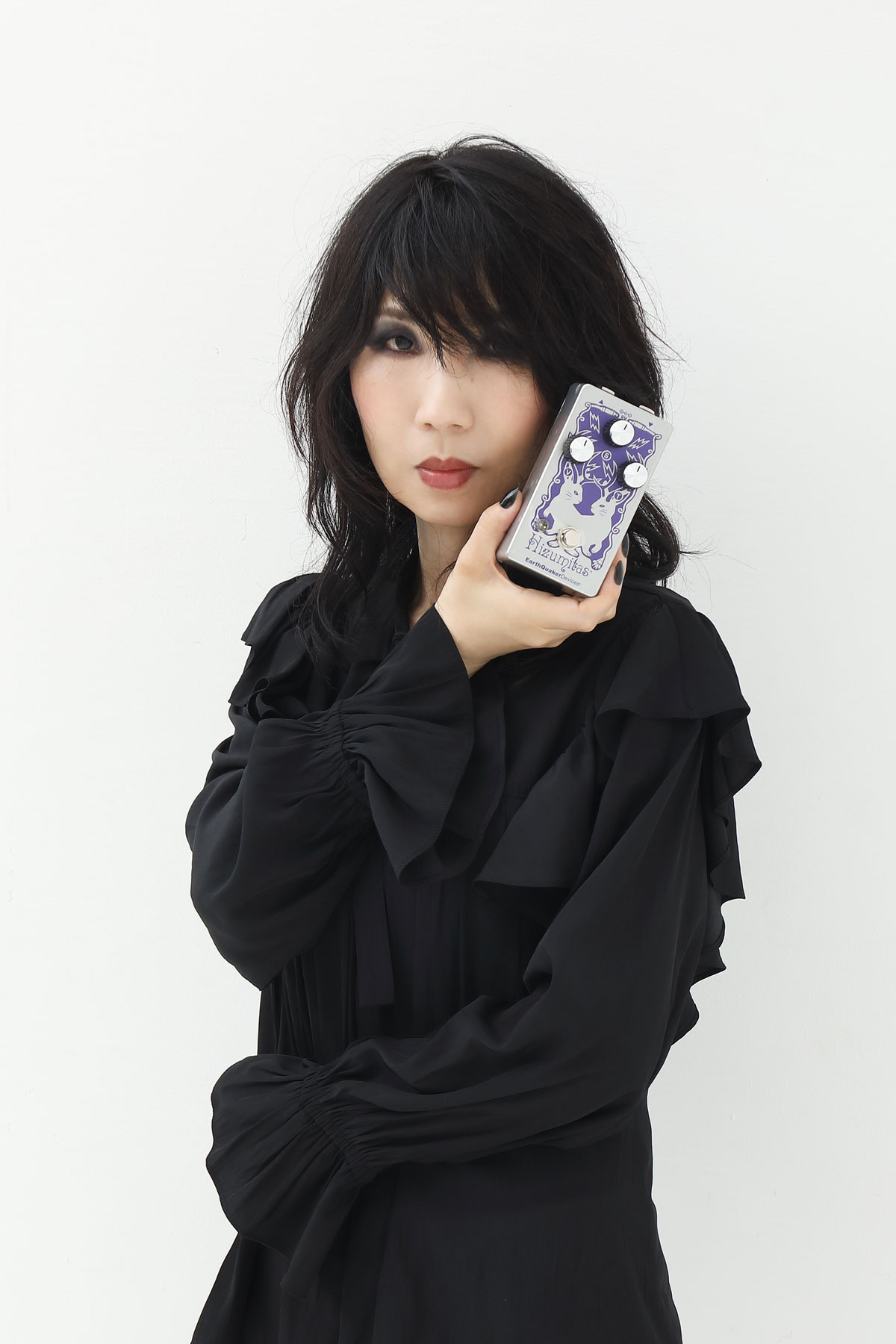
Do you have any other pedals that you would like to clone, that are too important to be left off your pedalboard but you don’t want to use outside the studio?
“It’s not a pedal, but the Roland tape echo is crucial to make my sound. I have a few and they are all different. I love that wobbly sound and how intuitive [it is] to use. I take that out on tour and use it, but it breaks down every time I take it out and I’ve been getting it fixed many times.
“I always see tape echo emulators, but they don’t fully recreate that unstable wobble that analog tapes have or an unpredictable accidental sound. Not cloning, but I would love Roland to make the same thing again.”
And is this a more noticeable phenomenon now that pedalboard culture has become so popular, and like the vintage guitar market, the market for pedals – both vintage and limited-run – is becoming difficult to access for many players. Is this a problem you have encountered?
“Boris’s engineer is a fuzz freak and he says, ‘When books that feature vintage fuzz pedals come out, people will know about it and it drives the price up.’ So whenever he gets offered interviews about fuzz pedals, he would decline them all. Really, it’s not just the price; [the] rarity value has gone up too, and the conditions vary.
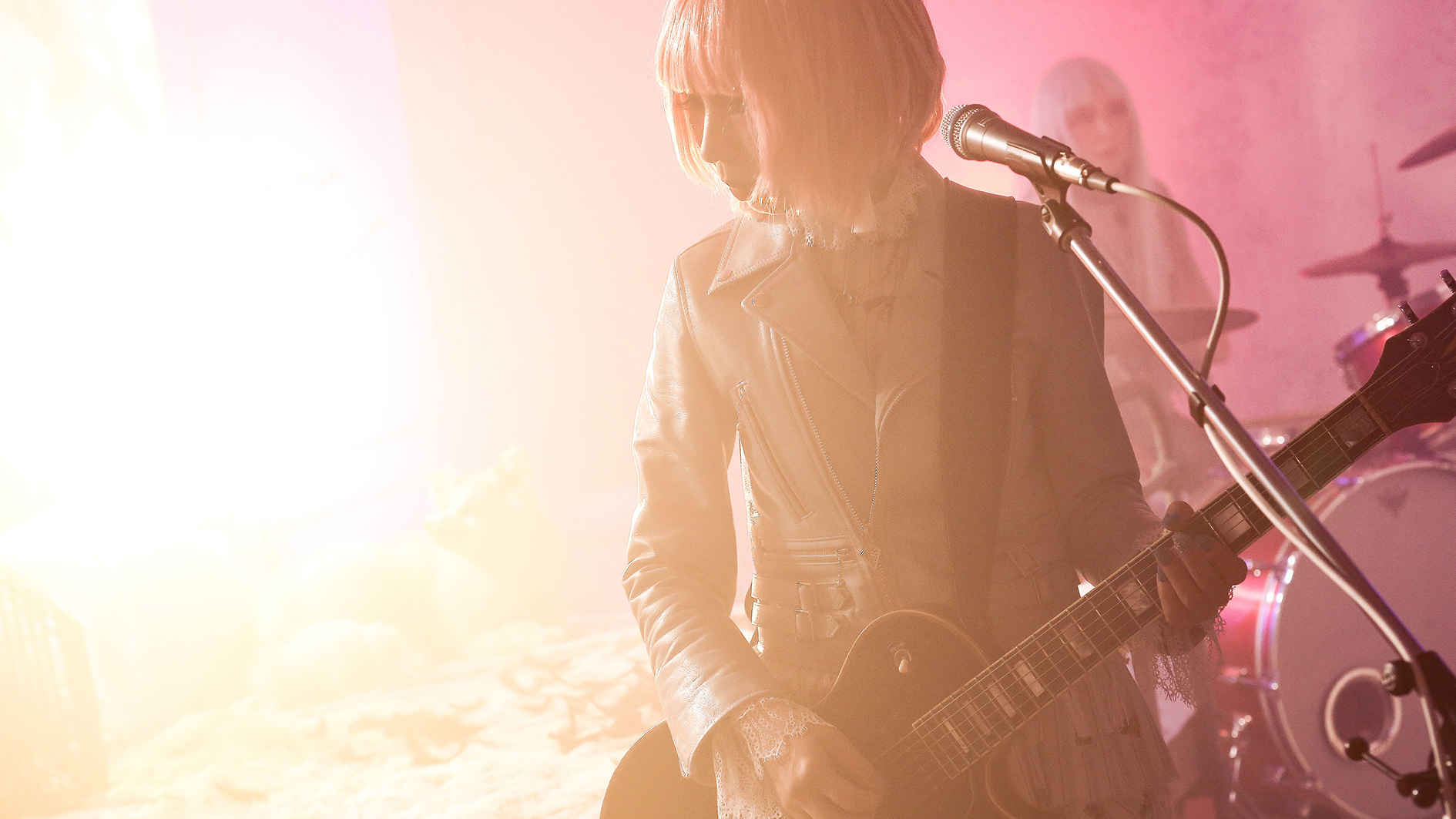
“Each pedal has a different sound, so I can’t casually play them anymore. Many people have been demoing on the internet now, [so] it’s easier to guess the sound than it used to be, but I still would want to actually own them and experience the excitement when you open up the back of pedals. A smell of the board, actually [the] feel [of] a footswitch and a sound pressure when you play it.”
I always suspect that, looking from the outside, you’ve got a certain guitar tone and it works with all of the different styles that you play, and that your tone is almost like the unique ingredient that makes it all Boris. But has your rig changed much in recent years? Are you always looking for another addition for your pedalboard, or a new amplifier?
“My main things – the ‘86 Gibson Les Paul Custom, Elk BM and Roland tape echo – have been the same. This has been the core of my expression. But the Elk BM would be replaced by Hizumitas as I have it now.
“I feel that it’s a miracle that Boris has many styles of music that’s made by the members and it’s not just because of me. And I come across new gear, new pedals everyday that are precious. I feel lucky that lately I get many demo pedals from all over the world.”
Indeed, is there a pedal that you have been searching for but can never find?
“I haven’t been attached to vintage stuff, so there aren’t things that I have been looking for and can’t find it. It’s the opposite. I have pedals and they would be the start. Pedals give me inspiration and they play with me.”
What has made you so loyal to your Les Paul – is it about balance? That we can search all the time for new pedals but it’s important to have at least one constant in our setups?
“The first guitar I bought was a black Les Paul and since then, I’ve been playing black Les Pauls, so I feel like it has became an icon of me. It’s the same as when an anime character always wears the same thing – same as the pedal, too. I didn’t think about it too much, but I’ve just been playing it for a long time, since I could remember.”
What guitar amplifiers are you using at the moment and what do you look for from an amp?
“I use Orange and Matamp. They have rich bass and mids, and I like that they put out loud volume and stay clean. I make my tone with pedals so it’s important that amps have good clean tone.”
NO is extreme but we made it thinking that it would be a music piece to heal people
One thing I really loved about NO is the care and attention to the sound, and that’s true of all your releases, but it’s something that can be difficult to find in hardcore punk. Usually the best productions sound terrible (in a good way), and at worst, they sound too functional – was that something you're conscious of when you're writing, that simple arrangements can be made transcendent if the tone is right?
“Just like you said, ‘terrible but cool’ is the sound production of Boris. [It’s] not a sound that you can understand – we record and mix to aim for a sound that you feel. NO is extreme but we made it thinking that it would be a music piece to heal people. But I personally didn’t think anything especially. I set up my usual stuff and played with a natural feeling I had.”
And, related to that, I suppose there is no such thing as a simple song. There might be few moving parts – the melody and the beat might not challenge us – but to create any song that works, all of the details need to be just right. Is that how you see songwriting, that the song is not over until the sound is created, too?
“It cannot be Boris music without Atsuo and Takeshi. Generally, we come up with songs from jamming and improvisation. We record live at the studio and we edit it, and then it becomes our songs.
“There is always the necessity that sounds and changes become one thing. With Boris, we detail the tone first, then the songs would follow it, so that we listen to what those songs want to become. Then we add specific coloring and expression with guitar and that leads them to their final destination.”
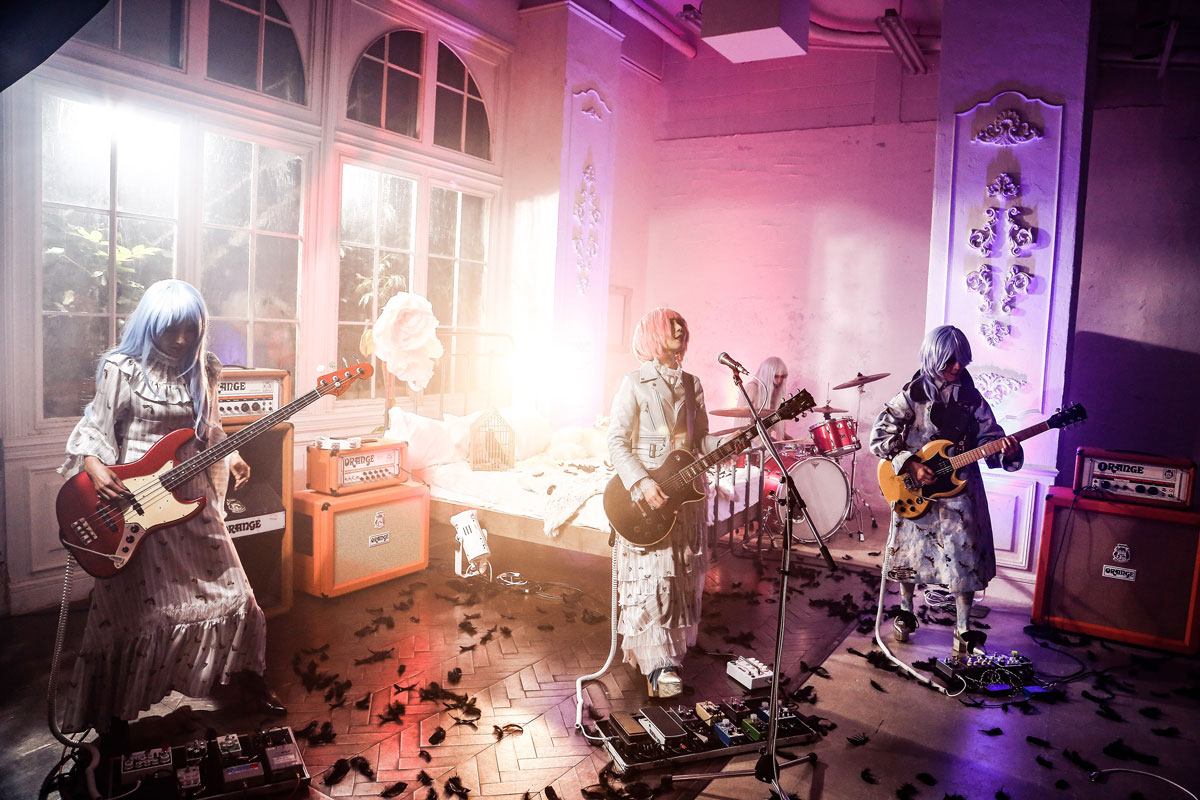
You described NO as “extreme healing music”, but is that the best description of the music Boris has always made? There has always been a therapeutic element to your sound. Your sound can be lush and inviting, or spectacular and exhilarating, but the audience always feel better afterwards. Is that deliberate in your writing and in the design of your tone?
“Indeed, Boris’s pieces are always ‘healing music’ and NO is especially extreme among them. It would make me super-happy if people listen to it and they can feel good. ‘Sound that is carried through the air’ is of great importance for me, that [it’s] not just guitar.
“I play keyboard and accordion through amps, too. By playing them through amps, not only do the notes come out, I think that so much information around [the notes] comes out of it too that it deeply resonates. Also, it’s an experience of your body vibrating from loud volume; I would like to share a feeling of pleasure with the audience. Even when I’m recording, I’m always imagining the live shows in my head when I’m playing.”
How much of your guitar sound has been influenced by non-guitar music? Who do you look to outside of guitar for inspiration? I often suspect that some of the best guitar tones are found when we try to capture the sound of another instrument.
“A comforting sound is a feel. In a guitar’s feedback, there is a comfortable one and an uncomfortable one. I’m always looking for a comfortable sound when I’m not playing phrases. I’ve never really intentionally tried to seek out non-guitar sounds, but the German rock from the ‘60s to ‘70s that feature analog synthesizers is [so] comfortable that I used to listen to it when I went to bed.”
Volume is often a dynamic we don’t speak about and yet it can be incredibly inspiring. How important is volume to your sound? Can you tell us a little bit about your approach to volume – do you need a lot of it onstage to be inspired and to make your sound work?
“The volume is very important. An upsurge of a sound that is carried through the air, a vibration. From guitar to pedals to amps and again guitar to pedals to amps… A feedback loop links to a grander space. The loud volume is an entrance to an experience of an extraordinary life, and it is really an important ritual.”
Finally, we can’t have you on Guitar World and not ask about guitarists. Which of today’s players are exciting you? And who were the most important players to you when developing your style?
“David Gilmour of Pink Floyd, Eddie Hazel of Funkadelic and such. In recent years, I’ve been greatly influenced by Michio Kurihara [ex-YBO2, White Heaven and Ghost [Japan]] and many people that I meet from playing music with Boris.”
- For more information on the Hizumitas Fuzz Sustainar, head to EarthQuaker Devices.
Jonathan Horsley has been writing about guitars since 2005, playing them since 1990, and regularly contributes to publications including Guitar World, MusicRadar and Total Guitar. He uses Jazz III nylon picks, 10s during the week, 9s at the weekend, and shamefully still struggles with rhythm figure one of Van Halen’s Panama.
